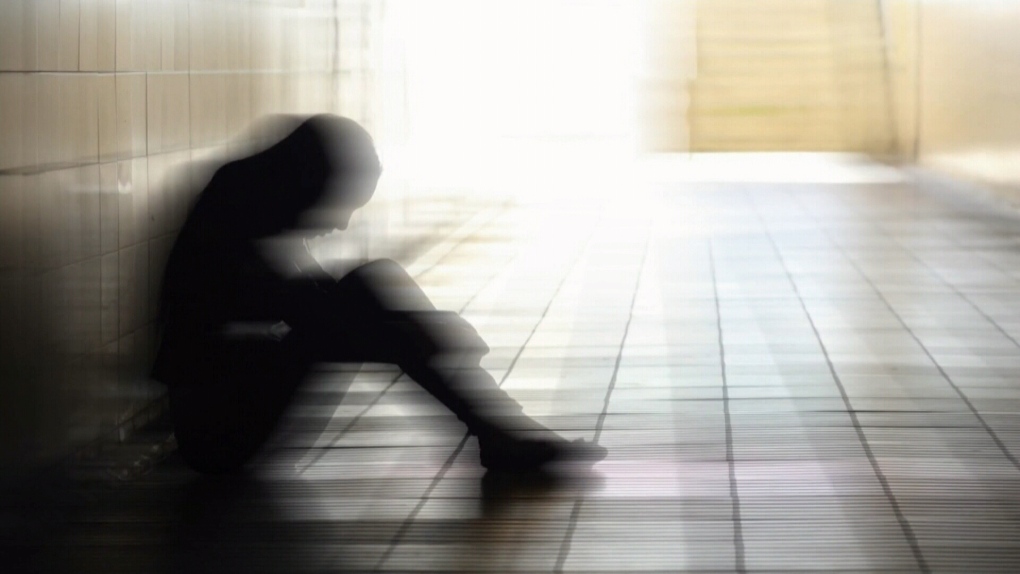U.S. surgeon general’s warning about loneliness echoed in Canada

While the U.S. surgeon general is calling loneliness the next public health epidemic, some say Canadians are also struggling mentally and physically.
Earlier this month, loneliness was brought to the forefront through an advisory published by the surgeon general. Doctor Vivek Murthy’s report said half of Americans have experienced it.
“The mortality impact of being socially disconnected is similar to that caused by smoking up to 15 cigarettes a day,” he wrote.
The U.S. surgeon general’s report cited research which says poor social relationships, isolation, and loneliness can increase the risk of heart disease and stroke by 30 per cent.
The report encourages people to talk with health-care providers about their social connections.
Bette Watson-Borg with the Canadian Coalition for Seniors' Mental Health (CCSMH) said it was encouraging to hear such a senior official putting this out into the public health domain.
"But at the same time, it wasn’t a surprise to us," she said.
Watson-Borg is managing a project to develop Canadian clinical guidelines for social isolation and loneliness in older adults.
A part of this work is a national survey looking for the perspectives of Canadians over 65 years old.
She says the surgeon general's report is a part of a larger movement to bring awareness to the complex issue.
"Most of us experience loneliness at different times in our life, and it's part of being human. At the same time, the research is showing that extended loneliness can really start to have those effects, not only on our mental health, but on our physical health, as well."
Watson-Borg said she was encouraged by the U.S. surgeon general's calls to action at the individual, community and societal levels.
SENIORS FIND CONNECTION FROM MILES AWAY
Once a week, Ann Tigchelaar calls two women she was matched with through the Canadian Red Cross’ Friendly Calls Program.
"It's two older ladies. They are both very different, and they are both awesome in their own way,” she said.
They talk for about an hour. Even though they've never met in-person, Tigchelaar says a deeper relationship has formed over the years.
"I enjoy the friendship. I enjoy learning from them. I enjoy feeling like I’m helping them to be a little less isolated and lonely."
Tigchelaar said she also benefits from her phone friendships because she knows what it's like to be alone sometimes.
"During the pandemic, I really got a taste of what it's like to be isolated because people couldn’t go anywhere or gather or do anything."
CTVNews.ca Top Stories

Doctors ask Liberal government to reconsider capital gains tax change
The Canadian Medical Association is asking the federal government to reconsider its proposed changes to capital gains taxation, arguing it will affect doctors' retirement savings.
Keeping these exotic pets is 'cruel' and 'dangerous,' Canadian animal advocates say
Canadian pet owners are finding companionship beyond dogs and cats. Tigers, alligators, scorpions and tarantulas are among some of the exotic pets they are keeping in private homes, which pose risks to public safety and animal welfare, advocates say.
Prince William and wife Kate thank public for birthday messages for son Louis
Prince William and his wife Kate thanked the public for their messages which had been sent to mark the sixth birthday of their youngest son Louis on Tuesday.
She was the closest she'd ever been to meeting her biological father. Then life dealt her a blow
Anne Marie Cavner was the closest she'd ever been to meeting her biological father, but then life dealt her a blow. From an unexpected loss to a host of new relationships, a DNA test changed her life, and she doesn't regret a thing.
How quietly promised law changes in the 2024 federal budget could impact your day-to-day life
The 2024 federal budget released last week includes numerous big spending promises that have garnered headlines. But, tucked into the 416-page document are also series of smaller items, such as promising to amend the law regarding infant formula and to force banks to label government rebates, that you may have missed.
Which foods have the most plastics? You may be surprised
'How much plastic will you have for dinner, sir? And you, ma'am?' While that may seem like a line from a satirical skit on Saturday Night Live, research is showing it's much too close to reality.
'Catch-and-kill' strategy to be a focus as testimony resumes in Trump hush money case
A veteran tabloid publisher was expected to return to the witness stand Tuesday in Donald Trump's historic hush money trial.
Quebec farmers have been protesting since December. Is anyone listening?
Upset about high interest rates, growing paperwork and heavy regulatory burdens, protesting farmers have become a familiar sight across Quebec since December.
South Korean sentenced to 14 months in jail for killing 76 cats
South Korean man has been sentenced to 14 months in prison for killing 76 cats in one of the country's most gruesome cases of animal cruelty in recent years.































